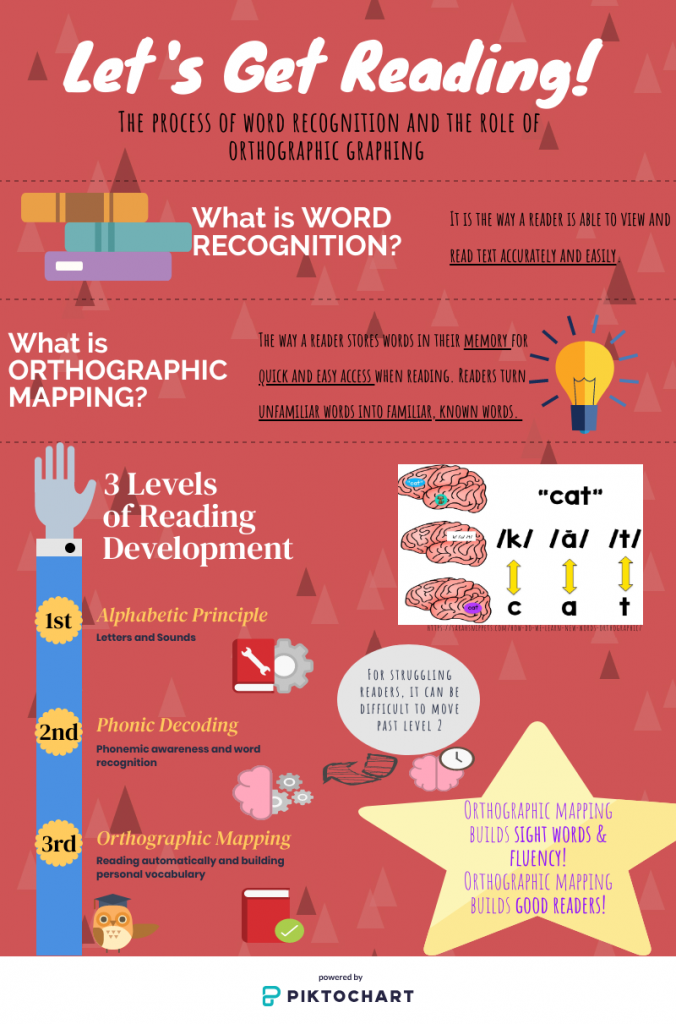Candidates demonstrate knowledge of major theoretical, conceptual, historical, and evidence-based foundations of literacy and language, the ways in which they interrelate, and the role of the reading/literacy specialist in schools.
Orthographic Mapping Infographic
This infographic describes orthographic mapping that directly influences the process of reading. This infographic can be used by other professionals to help create meaning of orthographic mapping.

Literature Review
This is a literature review and research proposal that was based on the topic of literacy skills and students with Autism Spectrum Disorder. It is written in the role of a reading specialist, and it’s purpose is to demonstrate knowledge on the existing research on the topic and make suggestions for future research.
 Loading...
Loading...
Rationale
Foundational knowledge is essential when acting as a literacy teacher or coach in order to perform with the best knowledge an procedures that benefits students. These artifacts demonstrate knowledge of the foundations of literacy that reading specialists practice and use. The infographic “demonstrates knowledge of the major theoretical, conceptual, historical, and evidence-based components of reading and language” (ILA 1.1, 1.3). By learning the different processes of literacy, I can use this knowledge when acting as a reading specialist and assisting students. The Literature Review also demonstrates knowledge of literacy (ILA 1.1, 1.2, 1.3) and specifically references knowledge “related to the role of the reading/literacy specialist” (ILA 1.4). These assignments shed light onto the direct roles of a reading/literacy specialist.